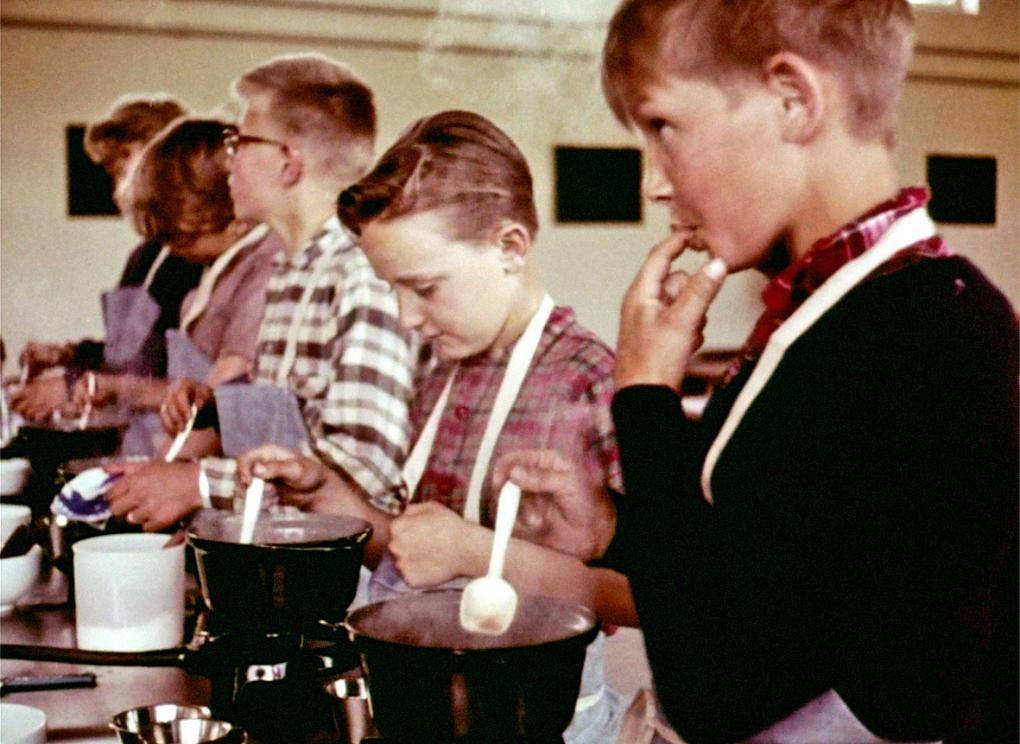The streaming site danmarkpaafilm.dk (Denmark on Film) was launched in 2015, making Denmark’s documentary and short film heritage available to a domestic audience.
However, an important element in Denmark’s documentary tradition has always been films made for foreign markets. Informational films in English and other world languages were understood to have a crucial role to play in promoting Denmark to the world as a modern, democratic and progressive nation.
Welcome to Denmark is a new series on the DFI's historical streaming site which presents a selection of these English-language films. Most were made expressly for a foreign audience, but often not for well-defined purposes. If a film about Danish design promoted sales of silverware or bacon in the US, that was a good thing, but the concrete effects of the films were not measured as such. Rather, making informational films for foreign audiences was an act of cultural diplomacy, a sharing of knowledge and culture with the world.
'Daycare in Denmark' (1954) about nurseries, kindergartens and after-school centres in Denmark is one of the shorts in the series Welcome to Denmark.
Short films in English about Danish culture, 1944-1979
Below is a summary of some of the topics in the English-language series Welcome to Denmark. Explore the series and the descriptions in full, written by C. Claire Thomson, on the streaming website.
Denmark Fights for Freedom: occupation and resistance
Denmark was occupied by Nazi Germany from April 1940 to May 1945. During the Second World War, there was significant overlap between the Danish documentary film scene and the Resistance. Denmark Fights for Freedom premiered in London in October 1944 and was reported to have circulated via newsreels in 6000 copies in twenty-six countries. The short demonstrated the potential of documentary film to disseminate the image of Denmark as a democratic land bravely fighting for its liberty.
Social Denmark: post-war English-language filmmaking
Denmark's first major post-war informational film project in English was the 'Social Denmark' series (1947), a series of five short films about Denmark’s social welfare system. Two of the films are available with English voiceover on the new site: Health for Denmark and Denmark Grows Up.
Bacon, beer and silverware: promoting produce and crafts
One of the most widely-travelled films was Shaped by Danish Hands (1947), part of a major exhibition on ‘Scandinavian Design’ in North America, where it also screened there on television. The Pattern of Co-operation (1952) focuses on the more prosaic exports of bacon and butter. The film with the most disarming of titles, It All Comes from Beer (1952), was commissioned by the famous Carlsberg company, outlining the history of the company and its contributions to the worlds of science and the arts.
Copenhagen city life
Perhaps the high water mark of state-sponsored informational filmmaking in Denmark was the Oscar nomination, in the Short Subject category, for Jørgen Roos’ A City Called Copenhagen (1960). By turns acerbic, wistful, thoughtful and playful, this twenty-minute colour film catches the Danish capital at a moment of transformation. Two alternative perspectives on Danish architecture and town planning are provided by Huse (1967), which explores contemporary Danish architecture, connecting form to function, and The Junk Playground (1967), portraying a project that parcels out derelict land to Copenhagen children, allowing them to design and build, keep rabbits and chickens, and learn life lessons about imagination, independence, collaboration, and the mating habits of their pets.
